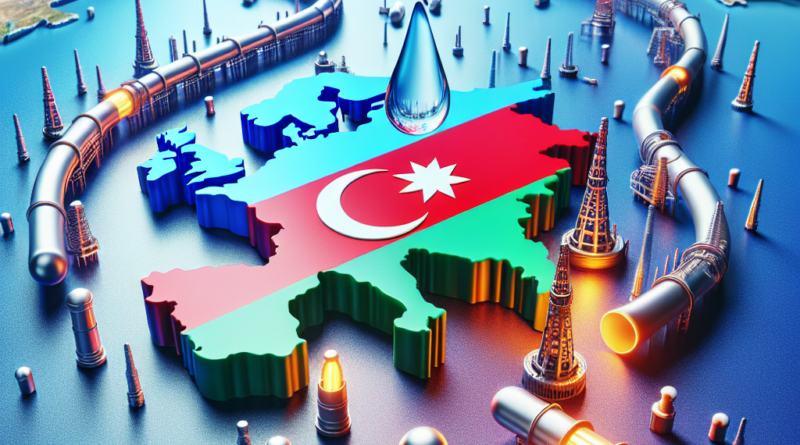How Azerbaijan is Conquering the European Gas Market
Boosting European Gas Supplies: Azerbaijan’s Energy Agreements
Following the EU’s cutoff from Russian gas in 2023, President of the European Commission Ursula von der Leyen visited Baku to meet with President of Azerbaijan Ilham Aliyev, signing a 10 billion cubic meters gas supply agreement to strengthen Europe’s gas supplies.
Azerbaijan’s Expansion Plans
As part of the new energy deals, in October 2022, a memorandum was signed in Bucharest between SOCAR and Romgaz to develop a feasibility study for the transportation of Azerbaijani gas along the Baku-Kulevi-Constanza route.
This project could involve the construction of LNG production and regasification plants in Kulevi and Constanza, along with other necessary infrastructures.
The feasibility study is expected to be completed within the current year, confirming Romania and Azerbaijan’s commitment to deep energy cooperation amidst the global energy market transformation.
President Aliyev announced in a speech during the opening ceremony of the Bulgaria-Serbia Interconnector in Nis, Serbia, that Azerbaijan is aiming to double its gas exports to Europe by 2027.
This ambitious goal requires an increase in natural gas production volumes and a significant expansion of the Southern Gas Corridor’s three main pipelines.
Azerbaijan’s Gas Exports to Europe
Italy, Greece, and Bulgaria stand as major clients in Europe, with record import volumes reaching about 12.9 billion cubic meters in 2023, according to Eurostat data.
Despite Azerbaijan becoming the fourth largest gas supplier to the EU via pipelines at the beginning of 2024, behind Algeria, Norway, the UK, and Russia, there is still a substantial unsatisfied demand as the EU imported about 150 billion cubic meters of gas from Russia.
The country aims to increase its gas production to 49 billion cubic meters in 2024, with 24 billion designated for export.
Azerbaijan has already exported 4.1 billion cubic meters of gas, with 2.1 billion sent to Europe in the first two months of the current year.
Azerbaijan’s Gas Expansion Strategies
Azerbaijan plans to broaden its European gas customer base, which currently includes Italy, Greece, Bulgaria, Romania, Hungary, and Serbia.
Albania, for example, intends to start using Azerbaijani natural gas to meet its energy needs by 2026, with approximately 200 million cubic meters expected annually.
The Trans-Adriatic Pipeline expansion will further facilitate the transport of Azerbaijani gas to broader European markets, with Italy set to receive a significant share of the additional capacity.
Addressing Controversies
While Azerbaijani gas exports to the EU have increased, so have gas imports from Turkmenistan and Russia.
However, official sources from Azerbaijan and the EU contest claims of Russian gas re-exportation through Azerbaijani networks.
To strengthen its position in the international market, Azerbaijan restricts imports of Russian gas for domestic use, freeing up more Shah Deniz field gas for export.
The country typically engages in short-term, limited volume gas import contracts with Russia, minimizing the impact on its EU exports.
As Baku transitions from being a long-standing oil exporter to a burgeoning gas player, declining oil exports pose economic challenges.
Azerbaijan foresees a gradual production decrease over the years, emphasizing the need for diversification and expansion into the gas sector.




